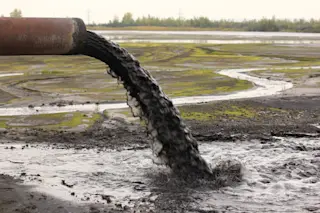(Inside Science) — Under the Mediterranean Sea lie meadows of Posidonia oceanica, a native seagrass species. It might not look like it’s doing much -- just swaying back and forth with the current -- but seagrass absorbs carbon dioxide, emits oxygen, protects coasts from erosion and provides habitat for fish.
But a new threat to seagrass beds has been detected: underwater noise pollution caused by humans. A team of European scientists reported in the journal Communications Biology in June that when P. oceanica is exposed to noise, organs in the plant that store energy and detect gravity are destroyed, adding to concern for this already-threatened species.
Anthropogenic underwater noise is "a big concern," said Nicola Quick, a marine biologist at Duke University, who was not involved in the study. There certainly have been natural subaquatic sounds from earthquakes and heavy rain, as well as from marine organisms, but humans have ...














